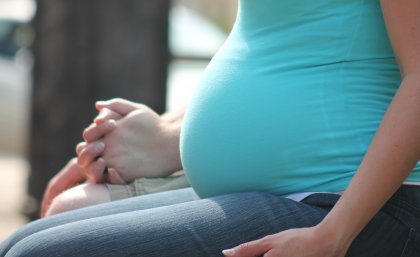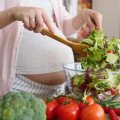.jpg?itok=Fal2QJQ1)
Parents who experience stillbirth or neonatal death will be offered “the best possible care in the worst possible circumstance”, thanks to guidelines developed by the Stillbirth Centre of Research Excellence and The University of Queensland.
The Mater Research Institute – UQ Stillbirth Centre’s Associate Professor Fran Boyle said the Perinatal Bereavement Care Guidelines gave healthcare professionals clear and practical directions about how to help families cope with a bereavement.
“The guidelines are about ensuring families that experience stillbirth or newborn death are given the best evidence-based care to help deal with their loss,” Dr Boyle said.
“To lose a baby is devastating, and the quality of care parents receive is absolutely vital to their immediate and longer-term wellbeing.
“It’s about ensuring the best possible care in the worst possible circumstances.
“These guidelines have been formulated in an attempt to see a standardised, uniform quality-of-care so that all parents receive the best possible care regardless of where a baby’s death occurs.”
Dr Boyle said stillbirth and newborn death created enormous psychological and emotional tolls on parents, with an estimated 60 to 70 per cent of mothers experiencing grief-related depression one year after their baby’s death.
“The guide has been informed by a committee that includes parents who have experienced the death of a baby, bereavement care experts and healthcare professionals from a range of disciplines,” she said.
Most of the guide’s 49 recommendations for respectful and supportive perinatal bereavement care target healthcare professionals working in maternity settings.
“It’s important that we recognise this is a very challenging area of practice, and provide appropriate level of support for people working in these settings” Dr Boyle said.
MRI-UQ and Stillbirth Centre Director Professor Vicki Flenady said eight recommendations were directed towards hospitals and maternity care facilities to ensure provision of supportive environments and training for staff.
“With this combined approach, healthcare professionals will be equipped to offer the most appropriate care and help guide parents and family members through their grieving process,” Dr Flenady said.
“The care we provide women and families at the time of this devastating tragedy is critically important to their recovery.”
Core funding to support the Stillbirth Centre of Research Excellence is provided by the National Health and Medical Research Council (NHMRC).
The guidelines are published in Women and Birth (doi.org/10.1016/j.wombi.2019.01.008).
Media: Associate Professor Fran Boyle, f.boyle@uq.edu.au; Faculty of Medicine Communications, med.media@uq.edu.au, +61 7 3365 5133, +61 436 368 746.
.jpg)









